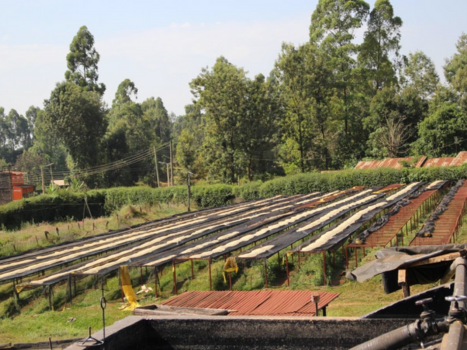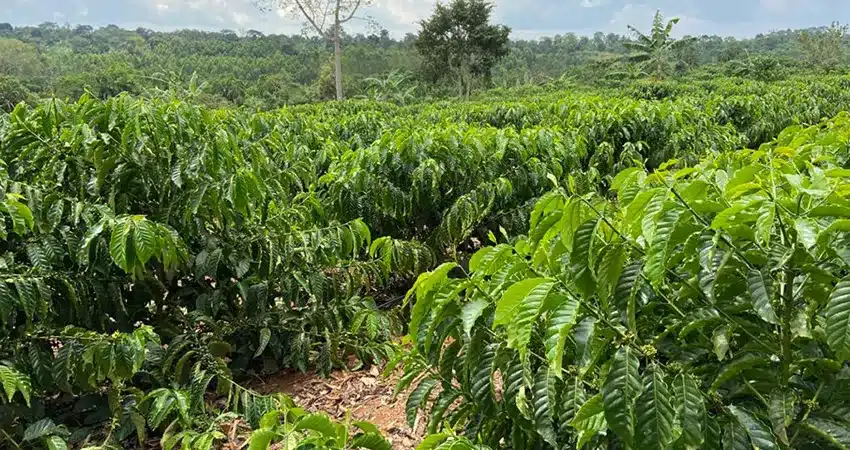Named for the village near where Ndia-Ini Cooperative was formed, the name means the deepest part of a river. The station is owned by cooperative members who deliver their cherry there. The station was built in 1969. The cooperative has 1,200 registered farmers, of whom about 395 farmers consistently deliver cherry to the station.
This is lot is sorted to contain only peaberries, an anomaly in which the coffee cherry only produces a single, round seed rather than the typical flat-sided two seeds.
| Country of Origin | Kenya |
|---|---|
| Region | Nyeri |
| Producer Type | Washing Station |
| Farm Name | Various smallholders |
| Co-Op | Ndia-Ini Cooperative |
| Processing | Washed |
| Processing Description | Hand-sorted, 12-24hr fermentation, dried on raised beds |
| Growing Altitude | 1800m – 1900m |
| Harvest Season | 2022/23 |
|---|---|
| Bag Weight | 60 KG BAG |
| Bag Type | Grain Pro / Ecotact |
| Plant Species | Arabica |
| Variety | Batian, Ruiru 11, SL28, SL34 |


Coffee has deep roots in Uganda, with robusta beans growing wild around Lake Victoria long before colonial times. While Ugandans traditionally used these beans for cultural rituals, commercial coffee farming only took off during British colonial rule in the early 20th century. The British saw potential in Uganda’s fertile soils and introduced Arabica coffee in the highlands, while promoting robusta across the country. After independence in 1962, coffee became Uganda’s leading export, despite disruptions during periods of political instability. A revival in the 1990s, driven by the Uganda Coffee Development Authority, transformed Uganda into one of Africa’s top coffee producers, renowned for its high-quality robusta and specialty Arabica beans.
In Uganda, the most ideal conditions for Arabica coffee cultivation are found in the high-altitude regions of Mount Elgon in the east and the Rwenzori Mountains in the west. These areas, with elevations ranging from 1,300 to over 2,300 meters above sea level, provide the cool temperatures and rich volcanic soils that Arabica coffee thrives on. Uganda produces both washed and naturally processed coffees, and in recent years, experimental methods like honey processing have also gained traction. The country grows a variety of Arabica coffee strains, including SL14, SL28, and Blue Mountain, with specialty coffee grades ranging from AA, AB to Peaberry, known for their distinct flavors and high quality.

Consistency is key when sample roasting. Yet, your first crack won’t always happen at the same time, which makes it difficult to know when to end your roast. Use this guide to know when to discharge depending on how long it took you to reach first crack.
© 2025 Kaawa Coffee.
© 2023 Kaawa Coffee.